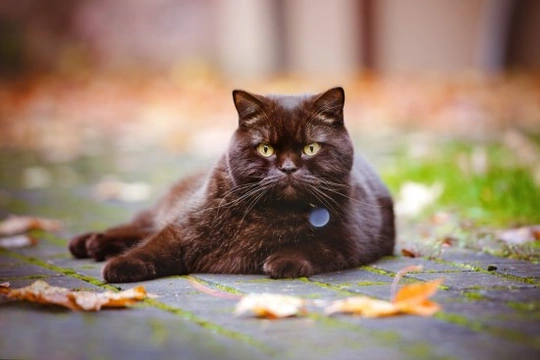
How to Help Boost Your Cat’s Immune System
Cats are pretty resilient creatures but just like people, they need to maintain a healthy and strong immune system in order fend off illness and diseases. There are certain times in a cat's life when their immune systems may be adversely affected and this includes when they have had to be given any sort of antibiotics to fight off an infection. It's when they may need your help because there are many things you can do to help boost their immune systems.
Feed a Well Balanced Nourishing Diet
Cats need to be fed a well-balanced, nourishing diet throughout their lives because this is a sure fire way of making sure their immune systems stay nice and strong. A cat's diet needs to be rich in proteins and in particular ones which boast high volumes of amino acids in them like the following:
- Taurine
- Arginine
- Carnitine
Ideally, their diet needs to be low in carbohydrates which means they don't run the risk of becoming overweight and cats need access to fresh, clean water at all times.
Make Sure Your Cat's Life is Stress-free
One thing that can really impact a cat's immune system is stress which is why it's so important for cats to lead relatively stress-free lives in a safe environment. Cats don't like being over-crowded and they hate living in unhygienic environments. Cats also don't do very well when kept in smaller spaces where the ventilation is not as good as it should be. Research carried out in the States has shown that cats living in these conditions typically boast lowered immune systems.
Enriching Their Environment
Cats also like to live in an environment where there is plenty of things for them to do and where they can be kept entertained and busy. Cats sleep for many hours but when they are up and about, they need to be kept busy both physically and mentally, which is why it's worth investing in good quality toys for them to play with when you are not around to play with them yourself.
Consider Using Supplements
These days, there's a great selection of cat supplements on the market which help boost a cat's immune system. Reducing any stress a cat may be feeling is only part of the equation and the same can be said of their diet. However, you should always discuss things with your vet before you buy any supplements for your cat because they are the best people to offer advice on which type of supplement to give your cat.
It could prove very beneficial to offer your cat a nutrient supplement and this is particularly the case in older cats who need that little extra help to fight off bacterial infections. Again, your vet would be able to examine your cat and then offer the best advice on which supplement to give them.
Most commercially produced cat supplements that help support immune systems contain valuable vitamins and minerals. However, the proportions may vary so it's worth checking these out. The ones you need to look for include the following:
- Antioxidants
- Arabinogalactans
- Purine Nucleotides
Good sources of antioxidants are vitamin E and C and although these will not directly help boost your cat's immune system, they will help reduce cell damage which in turn helps a cat recover when they are ill.
When it comes to Arabinogalactans, these do contain agents which stimulate a cat's immune system. They also contain a certain amount of anti-inflammatory properties which help with bacterial and viral infections. Cats suffering with cancer are often prescribed a drug called ImmunoSupport which contains Arabinogalactans.
Purine Nucleotides help regulate a cat's metabolism and works well at maintaining correct body functions. Again, it is worth discussing this type of supplement with your vet, although there are quite a few available over-the-counter which includes the following:
- Super VitaChews – these are soft chews specifically formulated for cats
- Proanthozone
- Cell Advance
- Pet Alive Immunity & Liver Support
- Premium Plus AntioxiTabs
Tips and Advice
Cats with weakened immune systems do better if they are fed a natural food diet that's supplemented with all the right vitamins and minerals. If however, you feed your cat a commercially produced food, you need to check out if it contains any type of food dye or additives as these may adversely affect your pet's immune system.
You should also avoid using any sort of flea treatment on your cat as this too may have an adverse affect on their immune systems. The other thing you need to bear in mind is that as a cat grows older, it is best to keep the number of booster vaccinations they are given to a minimum because these will put pressure on their immune systems.
If your cat has to go on a course of antibiotics, make sure you complete the course but at the same time you need to supplement their food with a supplement that will help boost their immune systems which will be impacted by the much needed antibiotics.



